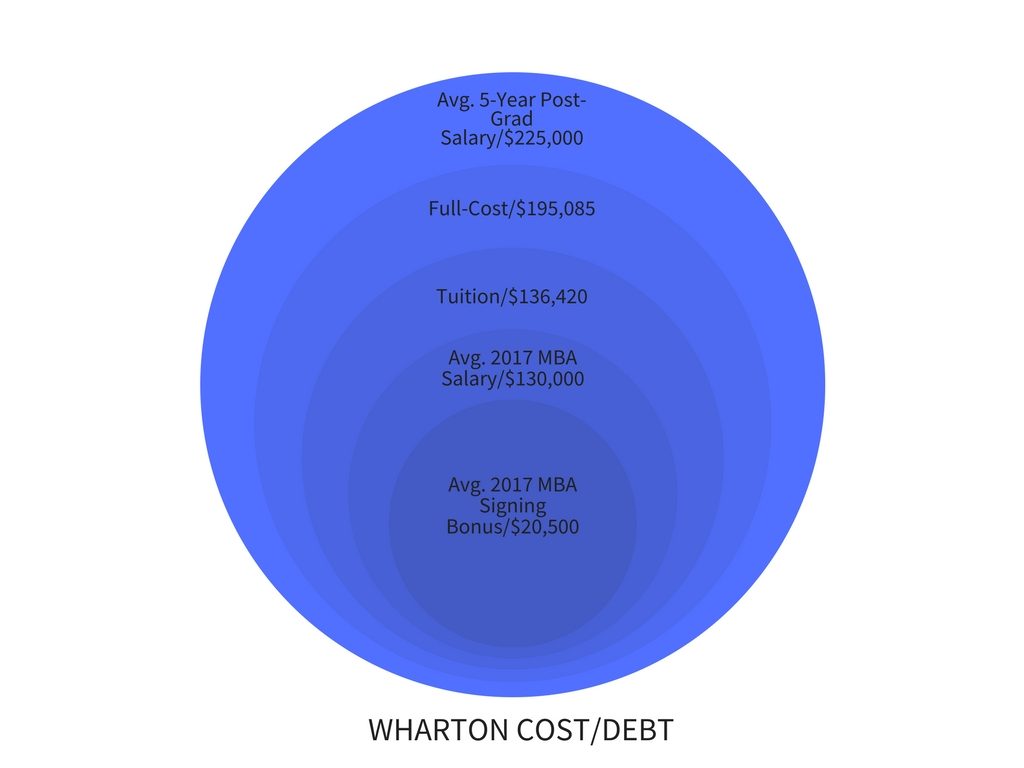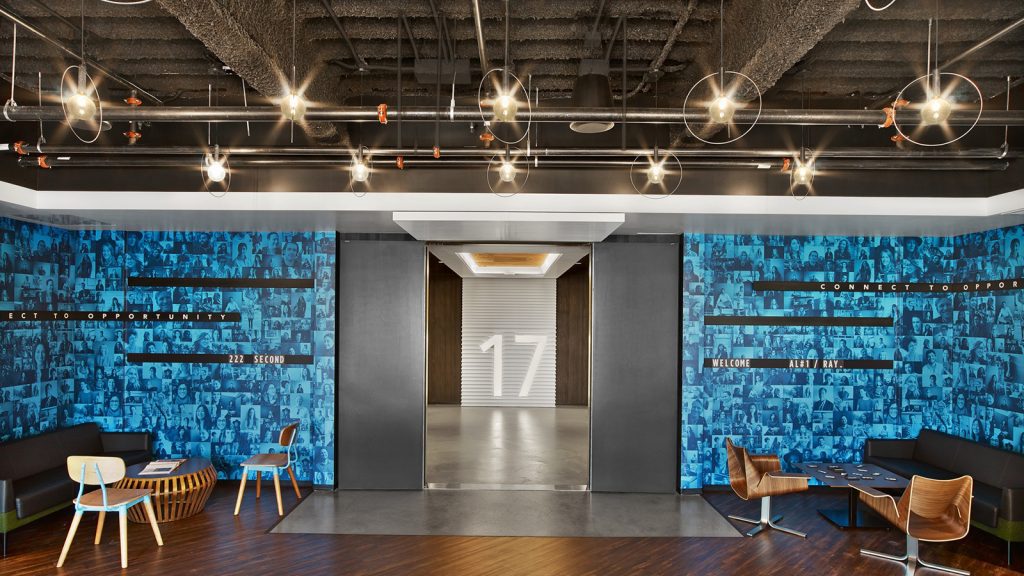MBAs Hold High Expectations for B-School Admissions Process, Survey Finds

According to the 2018 MBA Applicant Survey conducted by the Association of International Graduate Admissions Consultants (AIGAC), MBA applicants expect a lot from business schools as they make their way through the admissions process. Not only do they want the schools themselves to be more transparent—including providing status updates, feedback, and earlier wait list decisions—they also want more consultant advice and interaction.
“More transparency in terms of the status of the application will be appreciated,” wrote one survey respondent. “Leading schools like [schools] were notoriously quiet about the application for more than 5 weeks.”
Even applicants whose bids for admission were unsuccessful want more from schools. “Feedback at some point would be fantastic,” wrote one. “At least some indication of what portion of an application was below expectation would be helpful even just for personal development.”
The latest annual AIGAC survey drew almost 2,000 responses from applicants to more than two dozen leading business schools. Results were released as part of the admissions consultant group’s annual conference, which took place last week at Northwestern’s Kellogg School of Management.
Where Do MBA Applicants Look for Admissions Information?
According to the survey results, school websites are a primary source of information for 80 percent of applicants. After school websites, online information sessions, student and alumni referrals, and admissions teams are where applicants are most likely to turn. In terms of what they are looking for, applicants are most eager for information that helps them set expectations for the admissions process, but finding it isn’t always easy. As one survey respondent said, “[School]’s application process was steeped in mystery.”
Outside of school resources, students look to social media, online communities/forums, MBA rankings, and then family/friends/work colleagues. They also look to the blogs and websites of admissions consultants as well as printed viewbooks and brochures. And many applicants look in as many places as possible to find the information they crave.
“Videos, interviews, and current or alumni experiences are very valuable,” wrote one survey respondent. Another underscored the importance of school websites being “very easy to navigate.” Online seminars that only reiterate information available on the schools’ websites are less valuable, shared another.

In the social media sphere, more applicants look to LinkedIn for information than any other channel, followed by YouTube and Facebook. Quora follows, trailed by Instagram and Twitter.

Schools That Get to Know MBA Applicants Best
Cornell’s Johnson Graduate School of Management, UVA’s Darden School of Business, and Dartmouth’s Tuck School scored the highest marks in terms of how well they get to know applicants as part of the admissions process. Notably, some of the most highly ranked business schools fell short in this regard, with Stanford Graduate School of Business and Harvard Business School bringing up the rear. As one candidate explained, “Though I fell in love with [school] during my campus visit, I felt that their application process was very impersonal, and I didn’t feel like I had enough of an opportunity to show the school who I was with a video and a [short essay] …”

Why the MBA? Why a Particular School?
The survey also sought to understand what most motivates applicants to apply to MBA programs in general. More than half—57 percent—seek to acquire new information, skills, and knowledge. Forty-nine percent, meanwhile, want access to job prospects. And 48 percent are seeking a stronger network or to advance their careers.
As for the top factors influencing which schools applicants choose to target, reputation reigns supreme, cited by 66 percent of applicants surveyed. School rank was a top factor for 61 percent, and school culture, for 53 percent.
To learn more about the survey results and to read more personal responses from applicants, consult the full survey here.
This article was edited and published with permissions from our sister site, Clear Admit.
Finding Philly’s Best MBA Return on Investment

It’s no secret that Philadelphia’s relatively low cost of living has historically made the Birthplace of America an attractive option for those in search of a big city experience outside the skyrocketing markets of other major East Coast cities.
As people flock from the New York metro region in search of a similar urban adventure at a substantially lower price point, Philadelphia has been controversially dubbed the “6th Borough.” Word to the wise for potential b-school interlopers: never tell any Philadelphian their home has been annexed by New York City.
About 90 minutes by train from New York City, the City of Brotherly Love is no Big Apple, but it’s one-of-a-kind. Sure, tourists and locals alike grip cheesesteaks in one hand while pumping their fists on the steps of the Art Museum a la Rocky, but the city reveals itself to those who have the patience (and wherewithal) to dig into it.
Whether that means embarking on a two-year MBA program or choosing among the accelerated options available, Philadelphia just happens to be home to several top ranked MBA programs in the world. Let’s take a close look at Philly’s programs. Oh, and here’s a napkin for the wiz.
Philadelphia Return on Investment
University of Pennsylvania’s Wharton School of Business
Officially the oldest business school in the U.S., The Wharton School at the University of Pennsylvania boasts well-known alumni billionaire financier Ron Perelman, LinkedIn CEO Jeff Weiner, and John Sculley of Pepsi and Apple. Wharton’s tuition of $136,420 and estimated total budget of $195,085 isn’t to be taken lightly. However, full-time MBA graduates earn an average base salary of $130,000 with an average bonus of $20,500, and a supreme 92.6 percent job acceptance rate. So, while having a somewhat unimpressive salary-to-debt ratio, Wharton’s reputation and alumni network precedes itself.
In fact, the school recently topped the annual Forbes best full-time MBA program list, sporting the best five-year financial gain after graduation. Wharton MBA graduates of the Class of 2012 are making a $225,000 average annual salary—roughly 42 percent higher than recent grads, easily topping the cost/debt ratio of the program.

Saint Joseph’s Haub School of Business
Notable alumni of Haub School of Business at Saint Joseph’s University include CEO of NutriSystems, Inc. Michael J. Hagan, Chairman and founder of Philadelphia Consolidated Holding Corporation James J. Maguire, and Senior vice president of PNC Bank Denise Viola-Monahan. SJU’s $30,294 tuition set against an average base salary of $65,000 means the school offers a competitive MBA to those who don’t want to break the bank.
Temple’s Fox School of Business
Fox School of Business at Temple University’s notable alumni include Systel CEO Jai Gulati, former COO and president for ConocoPhillips John Carrig, and CEO of Actavis and co-founder of Health Care Compliance Association Brenton L. Saunders. Fox’s tuition sits at $57,048 for residents and $80,484 for nonresidents. With a 97 percent job placement rate compared to $25,623 average debt and a $85,278 average base salary, Fox’s salary-to-debt ratio looks attractive.
Drexel University LeBow College of Business
The LeBow College of Business at Drexel University alumni include President and CEO of Rohm and Haas Raj Gupta, former CEO of Science Applications International Corp. Kenneth C. Dahlberg, and the Phillie Phanatic Tom Burgoyne. Tuition is $59,565, and graduating MBAs carry an average debt of $43,894. With a reported average base salary of $84,080, LeBow’s salary-to-debt ratio is competitive. Considering the comparatively low price point, LeBow emerges as an incredibly attractive ROI.
YOU MAY ALSO LIKE: How Philadelphia MBA Programs Help Lower-Income Applicants
University of Delaware Lerner College of Business
A short 20-minute train ride from Center City Philadelphia and under two hours from New York City, the Lerner College at the University of Delaware has an eye-catching reported average base salary of $90,291. Compared to tuition, which ranges from $33,000 to $55,000, depending on residency, Lerner’s ROI could shine through if figures hold true for most MBA earners from this institution.
Penn State Smeal College of Business
Although its central campus is located in Happy Valley, PA, the Smeal College of Business at Penn State offers an executive MBA program in Philadelphia. The program is priced at a hefty $102,000, but average graduate debt is reported at $36,500, and median salaries ranging from $97,890 to $101,857. With such an impressive salary-to-debt ratio, Smeal is an attractive option for those who prefer easy metro access rather than living in the thick of the action. Notable alumni include Chairman and CEO of Petroleum Products Corp. John Arnold, and Former Chairman and CEO of Merrill Lynch & Co. William Schreyer.
Why More and More MBAs are Coming to LinkedIn: #LinkedInLife

Since its 2003 launch, LinkedIn has been shaping the way people find jobs, becoming the most extensive professional social network on the planet. With over 530 million users, it is clear how the platform could pair job seekers with a multitude of career prospects. LinkedIn was just voted Company of the Year by HRDive for the comprehensive recruitment resources it offers its users. However, a network this expansive presents its own pool of opportunities. In fact, Glassdoor dubbed LinkedIn one of the 25 best places to work in 2017. For a company that prides itself on such a unique work environment, its employees even have their own hashtag (#linkedinlife). The company’s rising importance as a recruiting tool in the global economy (hence, over 30 offices worldwide) and its award-winning work environment make a career at LinkedIn an excellent option for MBA grads.
#LinkedInlife
LinkedIn takes a values-centered approach to building its employee culture. According to the company’s website, the values that define LinkedIn are: integrity, humor, transformation, collaboration, and results. Employees are entitled to a multitude of benefits, including 401(k) and Roth contributions, paid parental leave, 17 paid holidays, and an employee stock purchase plan (ESPP). The company also demonstrates its commitment to inclusive strategies by providing back-up childcare resources for employees whose children have special needs.
The Human Rights Campaign designated LinkedIn as one of the best places to work for LGBT equality in 2017. LinkedIn makes an effort to provide resources for its community’s LGBT members, including (but far from limited to) supporting gender reassignment surgery and ensuring that domestic partners and same sex spouses are included in U.S. Benefit programs.
In addition to a unique and inclusive set of standards and values, LinkedIn provides an environment that is far more exciting than that of the standard corporate job. According to The Undercover Recruiter, each floor of LinkedIn’s London office is structured according to a theme. The sports-themed floor has a Wimbledon Room with astroturf on the walls and an umpire chair.

Inside LinkedIn’s San Francisco headquarters/Photo by Eric Laignel.
Getting Hired
In recent years, LinkedIn has trended toward using its website and platform, as well as hosting regional events for recruiting as opposed to using traditional job fair settings. MBAs at LinkedIn can find jobs in sales, marketing, finance, product, and business development through the Student Careers program. At LinkedIn, the community is organized into teams, and each team has its area of focus. Professionals seeking careers specifically in business can choose from about fifteen possible teams. The Corporate Development and Strategy team, for example, leads the way in determining company strategy and analyzing market activity and opportunities. The Global Solutions team focuses on marketing, hiring, and sales. Those who wish to focus exclusively on marketing can look into the LinkedIn Marketing Solutions (LMS) team.
In a 2015 interview with Cosmopolitan, LinkedIn Global Talent Acquisitions Leader Tey Scott discussed how, despite its headquarters being located in Mountainview, CA, the company hires talent from everywhere—which can mean a lot for both domestic and international MBAs.
“We hire from around the world, and we have an amazing relocation assistance program that supports all levels of hires,” she says. “We offer temporary housing, and help employees find daycare, schools, or other things that suit their needs—whether it’s a student relocating from [the East Coast] to Silicon Valley, or someone who has to relocate an entire family and sell a house.”
Scott continues, saying, “We also try to help people get to know the new area they’re moving to. For recent graduates and students, we’ll put them in a LinkedIn group and start conversations with them so they can figure out what neighborhoods they want to live in, and even help them find roommates.”
The company has also made an active effort to convert interns into full-time employees, she adds. “The goal is to convert as many people who come through it into full-time employees. We have interns in all of our locations globally, and we even host interns from other Bay Area tech companies for an annual intern hack day at our headquarters. Undergraduate and MBA interns must be enrolled full-time in a program and return to the program following the internship.”
Find out more about LinkedIn’s MBA internship opportunities here.
How An MBA Degree Can Land You a Job at Pfizer

MBA grads looking to make headway in an ever-expanding field with massive growth potential should look no further than healthcare and pharmaceuticals. There’s a reason more and more business school graduates have begun to pursue pharma over more tried-and-true post-MBA paths like real estate, consulting, and finance: the pharma industry offers a myriad of opportunities. There’s an almost inexhaustible supply of interesting problems to solve while earning boast-worthy salaries.
When it comes to major industry players, Pfizer is one of the undisputed global pharmaceutical leaders. Many of its products have burrowed their way into popular consciousness—both figuratively and literally. Lipitor, Viagra, Zoloft, Xanax, Advil, ChapStick, Preparation H, and Robitussin are iconic brands unto themselves.
Below, we’ll take a deeper look into exactly how MBAs can gain a foothold at Pfizer.
Why Do MBAs Love Pfizer?
Pfizer’s name brand recognition just so happens to correlate with a stellar internal reputation among employees, both past and present. Forbes, Fortune, LinkedIn, CareerBliss all consistently rank Pfizer as one of the happiest, most employee-centric, and/or most in-demand employers in the American pharma space.
In an interview with the Stevens Institute of Technology blog, Pfizer Senior QA Manager Bill Mestrandrea, a Stevens MBA alum, spoke of the deep camaraderie that he has with his fellow MBAs at Pfizer, comparing it to a “band of brothers.”
He elaborates: “We’re all in it together. I’ve met people from other departments who my work influences, and they’ve influenced my work as well. It gave me a better understanding of the network within Pfizer, and how it all comes together to form one company, always working in support of our patients.”
An anonymous former Pfizer employee took to Glassdoor to extol the company’s virtues: “If you can keep up with the fast pace and are not overly sensitive, Pfizer is a great to work. Everyday is an adventure and the benefits are excellent.” An anonymous Technical Specialist in the New York branch lauded Pfizer’s “great gym, clinic, cafeteria, and day care” in a Forbes profile.
Payscale reports that MBAs earn an average starting salary of around $121,000. Pfizer prides itself on a competitive compensation and benefits package that rewards employees “based on the contributions they make to [the] business.”
The company offers a number of in-house health and wellness programs, including health and disability insurance, medical screening, free or reduced-cost vaccinations, discounts on Pfizer products, and nutrition and fitness counseling. As part of the benefits package, Pfizer also offers access to colleague-directed retirement funds, company contributions to retirement financial vehicles, life insurance, and financial planning education.
Working at Pfizer
If there’s a common thread that runs through day-to-day life for all MBA grads at Pfizer, no matter their function, it’s that they’re all expected to move quickly and keep up with the constant demand. Pfizer is sympathetic and has sought out solutions to help acclimate first-year MBAs—namely, its Summer Associate Program, which has placed alum in full-time roles for the past 15 years.
Pfizer’s 10-12 week Summer Associate Program recruits and provides “first-year MBA students from top-ranked business schools … with a variety of unique experiences that will serve to develop and broaden critical skill sets and competencies as they progress their development towards leadership roles within Pfizer.”
Students are assigned challenging projects within Consumer Marketing, Corporate Audit, Corporate Finance, Global Procurement, Pfizer Consulting & Execution, and Pharmaceutical Marketing. By the end, Summer Associates “gain a wealth of valuable industry knowledge, networking opportunities, and life experiences.”
According to Pfizer, “MBA Summer Associates receive an industry competitive salary, housing support options and the prospect of conversion to a full-time opportunity upon the completion of their MBA degree.”
Jane Scholl (Columbia Business School ’12), whose healthcare resume stemmed from a desire to “improve the lives of others,” discussed the way her 2012 internship led to a position with the Marketing Rotational Program the following year:
“Though I only spent three months with Pfizer during the summer, I was treated as a valued member of the team rather than an intern. I was encouraged to share my thoughts and ideas even if they differed from those of other colleagues. I worked on meaningful projects that contributed to the business, and some of my recommendations were implemented before the end of the summer.”
Oindrila Sardar (Chicago Booth ’11), a Senior Manager at Pfizer’s Established Products Marketing Platform, discussed the relationship she had with the rotation managers during her Summer Associate internship:
“My rotation managers have played a critical role in my development with weekly one-on-one meetings and their insightful project guidance. They have been receptive to my interests and have matched them with meaningful assignments Throughout my rotations I have worked with cross-functional colleagues from many areas of the company which has helped me further understand Pfizer and its structure. I have been surprised by the high level of trust and responsibility given from the very beginning.”
Landing a Job at Pfizer
It’s pretty straightforward: Pfizer’s Summer Associate Internship is a surefire way for MBAs to get hired. In fact, 16 out of its recent 25 summer associates were extended full-time offers. That said, there’s plenty of recruitment that takes place outside the sacred intern space.
In the fall, Pfizer aggressively targets top MBA programs, particularly in the Mid-Atlantic and Northeast close to its New York HQ. The company is interested in drawing from a pool of diverse and competitive first-year applicants, especially those with a taste for finance, marketing, global supply, and general management. Although previous pharma experience will make your application more competitive, Pfizer is equally interested in applicants with compelling reasons for a career change.
Interviews begin in January and run until March. Pfizer sometimes conducts group interview sessions in which four or five applicants discuss issues with staff members. This process is designed to understand which folks will make a meaningful contribution to a Pfizer culture with many distinct and occasionally contentious points-of-view.
Top MBA Recruiters: Unilever

A job is possible for any determined MBA graduate. Obviously, the ideal job differs from graduate to graduate, but if you’re into sustainable choices for consumers, Unilever might be right for you. The company specializes in household products like soap, shampoo, and even iced tea. Well-known brands like Lipton and Dove are also underneath the Unilever umbrella.
The corporation consistently makes it on Forbes‘ top companies lists. Currently, Unilever is 103rd on the Global 2000 and 87th for America’s Best Employers. In 2013, it also came in 63rd among Innovative Companies. While students who study health and medicine rank the company highest, business and commerce students ranked it 12th in terms of attractiveness, according to Universum data. Broadly, LinkedIn ranked Unilever 8th in the world in a list of attractive employers.
The company employees 169,000 people with 46 percent of its managers women. With an MBA, maybe you could be next.
Why Unilever?
Unilever’s been around since 1930. It made bar soap a thing. It also helped popularize margarine, fish fingers, and frozen vegetables. The company truly revolutionized the modern age. Who wouldn’t want to be part of a legacy?
Unilever is also global: Its Indian branch, Hindustan Unilever, was ranked one of the world’s most innovative companies this year by Forbes for how it broke up the country into clusters to cater to different regions appropriately. The company has branches in Africa, throughout the Americas, Europe, the Middle East, and Asia Pacific. So a job at Unilever can take you anywhere in the world.
The corporation isn’t like most. It has a clear mission, one dedicated to health and well-being. It’s launched campaigns around the world to help bring facts around nutrition to developing countries. Unilever is currently working on halving the environmental impact of its products.
According to Glassdoor, Unilever offers some competitive salaries. Associate brand and finance managers can expect to make $95,000 a year, on average. Once a person reaches the finance or brand manager (without the associate), the salary increases by about $20,000. Overall, the ratings are high on Glassdoor, where employees are known to be brutally honest.
The company also boasts the ability for graduates to continue learning while at Unilever. It’s a place that allows individuals to grow and build upon their career—the ideal environment for a recent grad.
Working at Unilever
It may not be much of a surprise, but a lot of people want to work at Unilever. LinkedIn compiled a list of North America’s top 100 in-demand employers in 2015, with Unilever coming in 25th: ranked higher than Fox, Warner Bros, and Whole Foods Market.
The company has a global MBA recruitment channel where it looks for MBA holders who have at least three years experience in finance, marketing, or supply chain. The channel connects applicants with available openings for which they’re qualified, like an associate finance manager position with Ben & Jerry’s, another one of Unilever’s brands. Or what about a production support engineer? Unilever offers a variety of positions relevant to MBA graduates.
This is perfect because MBA students have been clear that they’d like to work at Unilever. It sat 34th on a list of 100 employers where MBA students said they’d like. MBA candidates from NYU Stern, the Wharton School, and Rutgers Business School have gone on to work for Unilever.
Getting Paid: Highest MBA Salaries in Chicago

Like most parts of the country, the U.S. heartland is undergoing a massive shift on all fronts, becoming more urbane, diverse, and open to outsiders than seemingly ever before.
Many communities are becoming increasingly diverse, attracting international residents at an unprecedented rate. Young, urban professional-types who once flocked to the coasts are now moving in droves to Midwestern cities, which were once dismissively filed under “fly-over territory.” Nowhere is this change more apparent than in the Windy City.
Chicago’s long been home to major players in media, education, finance, and food and beverage (shout-out to Giordano’s Deep Dish Pizza), but doing business in the city now also means something new. Like most major metropolitan areas, Chicago’s slowly dipping its toes into the tech game; the city’s home to Groupon, Grubhub, Orbitz, and Reverb.
So, take your pick, aspiring MBAs! When it comes to Chi-City, you’ll be a veritable kid in a candy store.
The 5 Highest Chicago MBA Salaries
Northwestern Kellogg School of Management
Northwestern Kellogg School of Management graduates earned average starting salaries between $106,000-$138,000, depending on their chosen industry. According to recent statistics, the four most popular industries to attract Kellogg MBAs were consulting (32.6 percent), where the starting salary hovers around $138,204 with a $29,375 signing bonus. MBAs in tech (22 percent) earned a starting salary of $119,713 with a $23,749 signing bonus. MBAs that specialize in consumer products (13.8 percent) earned an average starting salary of $106,052 with a $26,634 signing bonus. MBAs in financial services (12.8 percent) earned an average starting salary of $128,090 with a $32,100 signing bonus. Top employers of Kellogg graduates include: Adobe Systems, Amazon, Anheuser-Busch, Apple, Bain & Co, Bank of America Merrill Lynch, Boston Consulting Group, Cisco Systems, DaVita Healthcare Partners, Dell, Deloitte, Facebook, General Motors, Goldman Sachs, Google, JPMorgan Chase, Linkedin, Mars, McKinsey & Company, Microsoft, Nike, PepsiCo, among others
DePaul Kellstadt Graduate School of Business
Recent graduates from the DePaul Kellstadt Graduate School of Business posted record employment numbers for the school. According to an overview the school published, 92 percent of 2016 MBAs landed positions within 120 days of graduation. The average starting salaries for Kellstadt’s available MBA concentrations are as follows: Accountancy at $83,000; economics at $90,000; finance at $89,000; management at $83,000; marketing at $75,500; and real estate at $75,000. The most popular industries to attract Kellstadt graduates were accounting, financial services, manufacturing, health care, and consulting. Top employers include: Allstate, Bank of America Merrill Lynch, Boston Consulting Group, Deloitte, Deutsche Bank, GE Capital, General Mills, Google, Groupon, JPMorgan Chase, Microsoft, PwC, United Airlines, and Wilson Sporting Goods, among others.
Notre Dame’s Mendoza College of Business
According to statistics surveying the most recent MBA class, the average starting salary for Mendoza College of Business graduates is $105,000 with a $20,000 signing bonus. About 91 percent of MBAs received job offers within three months of graduation. The most popular industries to attract Mendoza MBAs are within tech (27.1 percent), financial services (18.8 percent), consumer products (14.6 percent), and consulting (11.5 percent). MBAs working in tech earned average starting salaries of around $110,000; financial services, $110,000; consumer products, $100,000; and consulting, $105,000. Top employers of Mendoza MBAs include: Deloitte, Procter & Gamble, PwC, Deutsche Bank, IBM, Discover, Allstate, IBM, Samsung, Amazon, American Airlines, ExxonMobil, Johnson & Johnson, AT&T, Kraft, Hershey, Heinz, Bank of America Merrill Lynch, Major League Soccer, United Airlines, General Mills, General Motors, Microsoft, GlaxoSmithKline, and Citibank, among others.
University of Chicago Booth School of Business
Chicago Booth School of Business graduates earned an average starting salary of $125,000, according to recent statistics. The top industries to attract Booth MBAs are financial services (36 percent), consulting (27.5 percent), and technology (16.7 percent). Booth MBAs working in financial services earn average starting salaries of $125,000 with a $40,000 signing bonus; consulting, $145,000 with a $25,000 signing bonus; technology, $125,000 with a $30,000 signing bonus. Top employers of Booth graduates include McKInsey & Company (7.1 percent), Boston Consulting Group (4.7 percent), Amazon (3.9 percent), Bain & Company (3.1 percent), Accenture (2.6 percent), Google (2.4 percent), Bank of America Merrill Lynch (2.2 percent), and PwC Strategy (2 percent).
University of Illinois at Chicago Gies College of Business
On average, Gies College of Business graduates can expect to start their careers in the $90,000 range with a $10,000 signing bonus. According to statistics supplied by the school, MBA grads have a 94 percent employment rate. The most popular industries are technology (20.3 percent), financial services (18.8 percent), consulting (15.6 percent), and consumer products (12.5 percent). Liautaud MBAs who took positions in tech started at $94,000; financial services, $87,857; consulting, $89,125; and consumer products, $95,800. Liautaud graduates work for a broad range of companies, but top employers include AT&T, Johnson & Johnson, Walt Disney, Amazon, Chrysler, Hewlett-Packard, Sears, Google, State Farm, City of Champaign, Bank of America, and Whirlpool Corporation.
